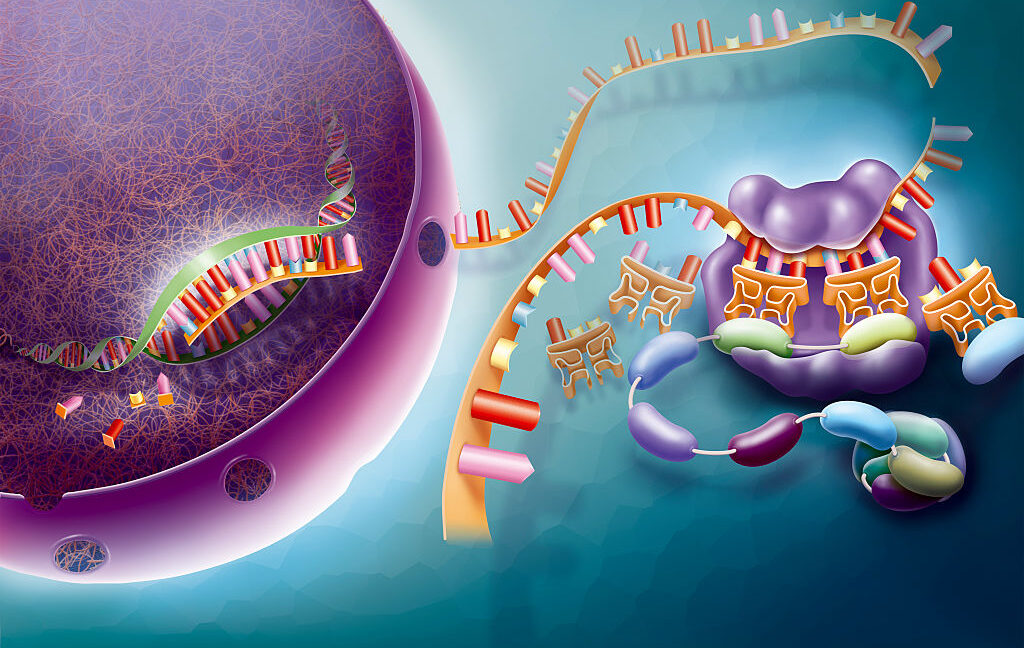Science
AI Struggles to Decode Gene Activity Complexity in New Study

Recent research has revealed that artificial intelligence (AI) tools still struggle to accurately predict gene activity in biological systems. A study conducted by researchers in Heidelberg—Constantin Ahlmann-Eltze, Wolfgang Huber, and Simon Anders—analyzed various AI software designed to forecast how genes behave under different conditions. The findings indicate that these AI systems performed no better than simpler predictive models, highlighting the complexity of biological processes.
The study examined AI’s capability to predict gene activity, a critical aspect of understanding cellular function. While significant advancements have been made in using AI to design enzymes and proteins, the nuances of genetic expression remain a challenging frontier. The researchers demonstrated that even when AI is trained on extensive data regarding gene activity, it may not grasp the intricate interactions that occur within cells.
Understanding Gene Activity and AI’s Limitations
Every human cell contains copies of approximately 20,000 genes, but not all of these genes are active at the same time. Gene activity is measured by the production of messenger RNAs (mRNAs). Some genes are consistently active, while others may only function in specific cell types or under particular conditions, such as low oxygen levels or elevated temperatures.
The researchers utilized existing data from numerous studies that analyzed gene activity under various circumstances. This information could potentially train AI to make accurate predictions about gene behavior in untested scenarios. However, the results from their study revealed that the AI models, known as single-cell foundation models, were unable to outperform basic predictive techniques.
The team trained these models using data from experiments where either one or two genes were activated through CRISPR technology. They assessed the AI’s predictions against two straightforward models: one that predicted no change and another that anticipated additive effects from the activation of multiple genes. Surprisingly, the AI models consistently exhibited higher prediction errors than these simplified baselines.
Complex Gene Interactions Remain Elusive
When genes interact, the outcomes can be complex. For example, the activation of one gene can influence the activity of others, leading to either additive effects or unexpected interactions. To explore these dynamics, Ahlmann-Eltze, Huber, and Anders employed a method called Perturb-seq, which allows researchers to observe the effects of gene alterations in detail.
Despite extensive training, the AI models struggled to predict the intricate changes in gene activity when multiple genes were involved. The researchers found that the deep learning models rarely identified synergistic interactions, where the activation of one gene would enhance or suppress the effects of another. In fact, none of the AI systems performed better than the basic models, which indicates a significant gap in the current capabilities of AI in biological research.
The study results emphasize that while AI has shown promise in certain scientific areas, its application in predicting complex biological phenomena is still in its infancy. Ahlmann-Eltze, Huber, and Anders concluded that the goal of developing AI that can generalize cellular states and accurately predict untested outcomes remains elusive.
In summary, the research serves as a cautionary note amid the growing enthusiasm for AI’s potential in biology. As the field continues to evolve, it is clear that the complexity of life cannot be reduced to data alone. This study, published in Nature Methods, calls for continued exploration and understanding of biological systems before assuming that AI can seamlessly integrate into all facets of scientific research.
-

 Politics4 weeks ago
Politics4 weeks agoSecwepemc First Nation Seeks Aboriginal Title Over Kamloops Area
-

 World5 months ago
World5 months agoScientists Unearth Ancient Antarctic Ice to Unlock Climate Secrets
-

 Entertainment5 months ago
Entertainment5 months agoTrump and McCormick to Announce $70 Billion Energy Investments
-

 Science5 months ago
Science5 months agoFour Astronauts Return to Earth After International Space Station Mission
-

 Lifestyle5 months ago
Lifestyle5 months agoTransLink Launches Food Truck Program to Boost Revenue in Vancouver
-

 Technology3 months ago
Technology3 months agoApple Notes Enhances Functionality with Markdown Support in macOS 26
-

 Lifestyle3 months ago
Lifestyle3 months agoManitoba’s Burger Champion Shines Again Amid Dining Innovations
-

 Top Stories2 months ago
Top Stories2 months agoUrgent Update: Fatal Crash on Highway 99 Claims Life of Pitt Meadows Man
-

 Politics4 months ago
Politics4 months agoUkrainian Tennis Star Elina Svitolina Faces Death Threats Online
-

 Sports5 months ago
Sports5 months agoSearch Underway for Missing Hunter Amid Hokkaido Bear Emergency
-

 Politics5 months ago
Politics5 months agoCarney Engages First Nations Leaders at Development Law Summit
-

 Technology5 months ago
Technology5 months agoFrosthaven Launches Early Access on July 31, 2025









